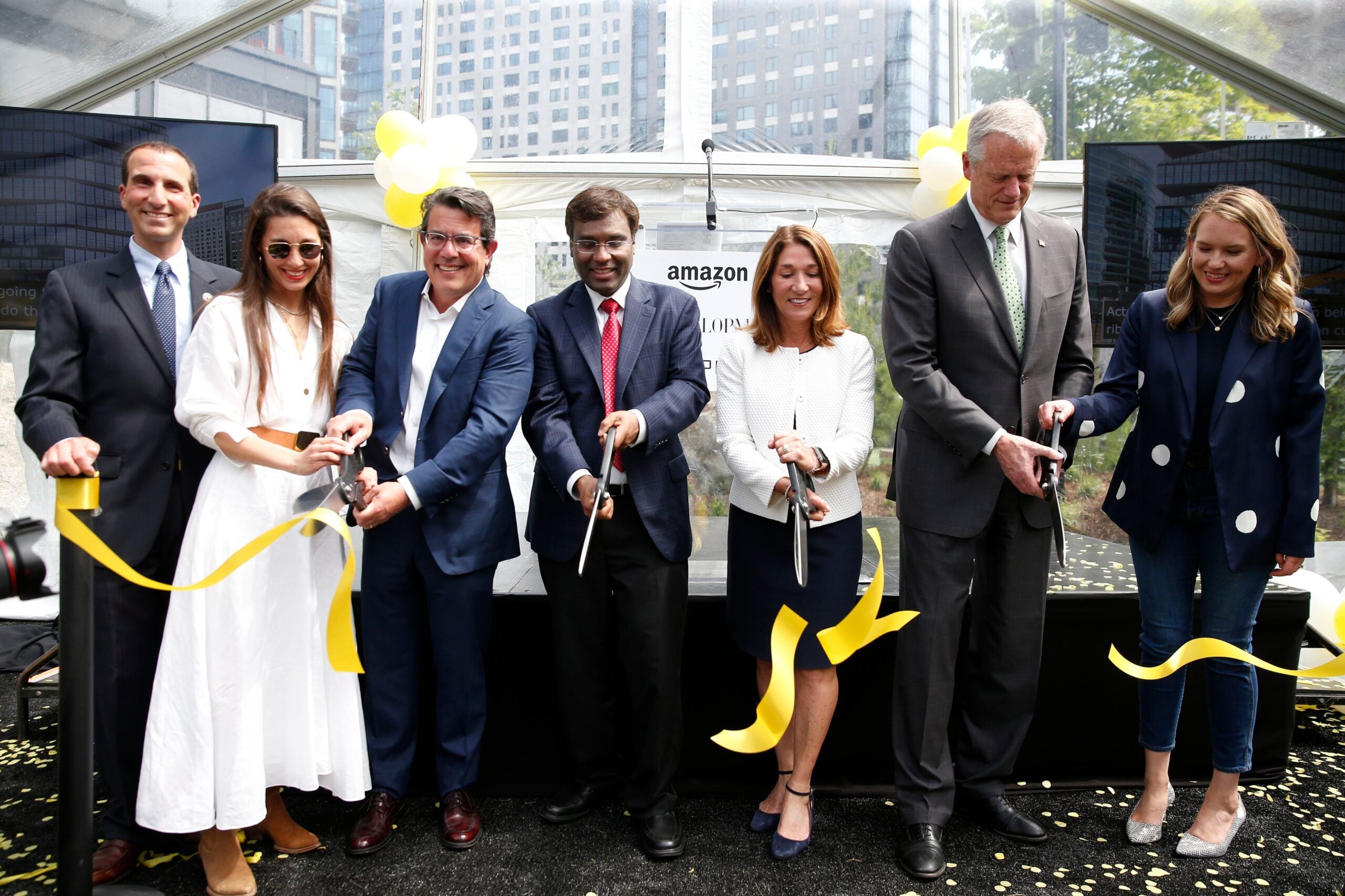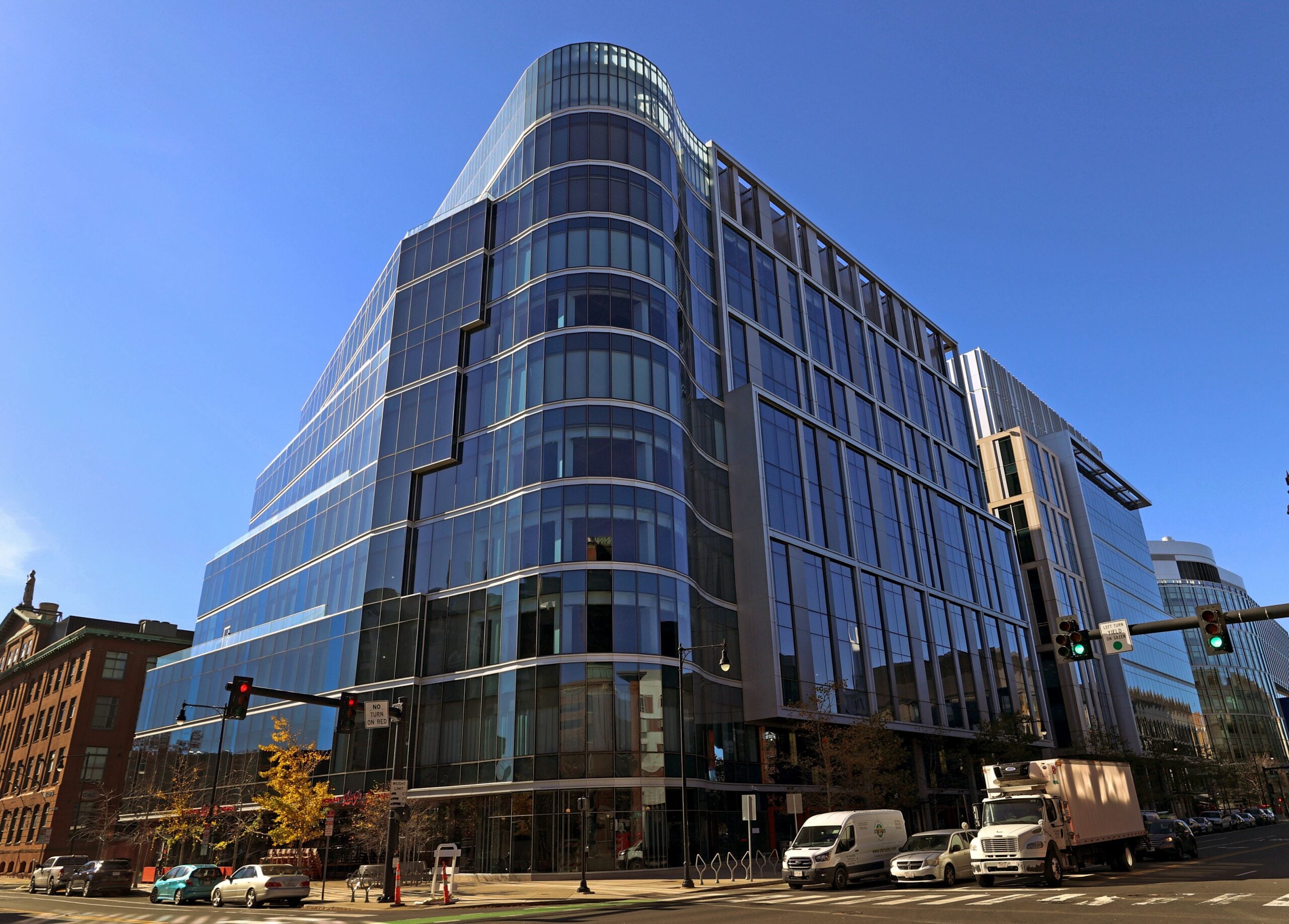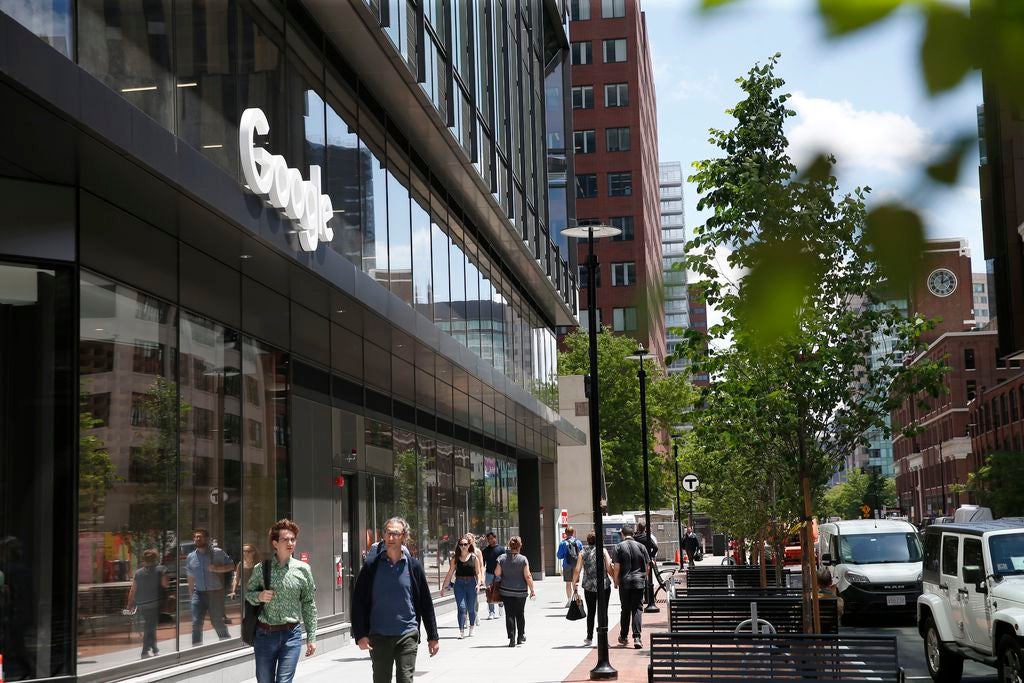The Boston Globe

By Anissa Gardizy, Aaron Pressman, The Boston Globe
The Massachusetts technology sector has benefited over the past decade from the expanding operations of West Coast giants such as Google, Meta, and Amazon, which created thousands of local jobs.
Now, that trend is reversing. Meta, the parent company of Facebook, on Wednesday announced the largest layoff in the company’s 18-year history, cutting more than 11,000 people, or 13 percent of its workforce. Google is also in cost-cutting mode, trimming projects, limiting travel, and slowing hiring, chief executive Sundar Pichai has said. And last week, Amazon said it would “pause” hiring for its corporate workforce until next year.
The economic pressure on the West Coast tech giants, which all have substantial operations in Massachusetts that they were planning to expand before the slowdown hit, could lead to more local job losses.
“It’s the first time in over a decade that these Big Tech firms are losing momentum,” said Mohamad Ali, chief executive of IDG, a leading tech industry research firm based in Needham. “This is a macroeconomic issue and Boston is seeing the effects.”
Amazon opened one of two gleaming new offices in the Seaport in June, with plans to house 4,500 employees there, and runs its global robotics division from North Reading and Westborough. Google said in May that it could more than double its workforce of 2,100-plus in Kendall Square as part of an office expansion. And last December, Meta announced plans to triple its office space in Cambridge, where it employs 500 people.
All of those growth plans are showing signs of slowing down.

Amazon declined to say how Massachusetts operations would be affected by its hiring pause. But in a message to employees, Beth Galetti, senior vice president for people and technology, said hiring would resume next year and top executives “remain excited about our significant investments in our larger businesses,” as well as initiatives such as Prime Video and Alexa. Many of the company’s employees in Boston work on the Alexa voice-assistant team.
“Our long-term intention and commitment to the communities where we have a presence remains unchanged,” Amazon said in a statement.
Amazon said in June that it employed 4,500 people in corporate and tech roles in Boston and had an additional 1,000 open positions. The company would not confirm its current headcount in Boston. It has 330 local job openings listed on its website, and it’s unclear how many may have been filled since June.
Earlier this year, Meta was gearing up to triple its real estate footprint in Kendall Square after leasing a 250,000-square-foot office building. But in July, a spokesperson said Meta was pausing the expansion, without providing a timeline for revisiting it.
On Wednesday, CEO Mark Zuckerberg wrote in a memo to employees announcing the layoff that “as we shrink our real estate footprint, we’re transitioning to desk sharing for people who already spend most of their time outside the office.”
Meta did not immediately disclose how many cuts would be made in its Cambridge offices. Prior to the layoff, it said it employed about 500 people locally, mostly engineers and technologists, including some working on the company’s “metaverse” ambitions.

The company said in June that its Reality Labs, the division working on virtual reality, augmented reality, and the metaverse, was a “growing presence in the Boston area.” (The division also contributed $3.7 billion in losses last quarter, while the rest of the company made $9.3 billion.)
Patrick Bench, founder of Boston public affairs firm Benchmark Strategies, said Meta’s slowdown in Kendall Square represents “lost growth,” and not just for tech jobs. He expects the move will affect small businesses, from catering companies to restaurants to custodial services.
Meanwhile, Google’s local expansion has been in the works since before the pandemic, when the company planned to lease most of a 16-story office tower at 325 Main St. in Kendall Square before it was built. Liz Schwab, head of Google’s external affairs for New England, said in May that the company’s local workforce could grow to 5,000 people when its office expansion is complete, though she did not provide a timeline.

Google’s local headcount of more than 2,100 people has not changed since May, a spokesperson said.
The company planned to open the new 380,000-square-foot office in late 2022. The spokesperson said the office will open in the “near future,” but Google has not set an opening date.
C.A. Webb, the former president of the Kendall Square Association, said she thinks Google will continue its growth in the area, “just maybe not quite at the clip that they planned.” Meta, on the other hand, “looks more vulnerable,” given the fundamental shifts going on inside the company.
Meta “may just end up cutting their losses and letting the talent in this market be remote, versus feeling the need to sustain the [office] overhead that they’ve been carrying,” she said.
And then, of course, there’s Twitter: Last Friday, Elon Musk began cutting half of the company’s 7,500 worldwide employees, and the Boston office is losing about 55 people, according to a letter from Twitter to the state. About 300 employees had previously reported to the Boston office and recent cuts have hit the marketing, curation, and communications teams, according to a source familiar with the matter.
The latest moves come after some prominent local companies have slashed payroll to adapt to the slowing economy and tighter financing market.
Last month, struggling wireless Internet service Starry said it would cut half its workforce, including 175 jobs in Massachusetts, while cybersecurity companies Cybereason and Snyk each announced layoffs of about 15 percent. And in August, online retailer Wayfair cut 870 jobs, 400 in Boston, and reduced its office space.
“The number of families and individuals who lost their jobs is brutal,” said tech recruiter Joe Suliman, partner and head of Daversa’s Boston practice, referring to the spate of job cuts across the industry. “The companies that recently had to do major layoffs were managed irresponsibly over the last few years and they should bear the responsibility of that miscalculation.”
The local presence of Big Tech firms has long played an integral role in Boston’s innovation scene, said venture capitalist Jeff Bussgang of Flybridge Capital Partners.
“It’s provided a massive magnetic force for great technical and startup talent to be employed and trained in Boston,” he said.
But he also thinks the aggressive expansion of the tech giants actually hurt local startups. “They were soaking up all the talent, and that had not been the case eight to ten years ago,” said Bussgang, who also teaches at Harvard Business School. “It [became] really hard for our startups to hire.”
Paul English, the cofounder of travel-tech firm Kayak, just recruited an executive from Meta to run one of his venture studio’s new startups, a review app called Deets.
“One of the reasons I was able to recruit him away from Facebook, where he’s paid a zillion dollars, is the chill in Big Tech,” English said. “For startups that are hiring, I think they like seeing Big Tech slow down a little bit.”
Ultimately, that’s why Webb thinks Boston won’t see an exodus of tech workers as the big companies retrench. “Maybe that engineer isn’t going to get to raise her salary 20 percent,” Webb said. “But there is another company waiting to employ her here in five minutes.”
History shows, in any case, that the tech giants will not survive indefinitely, IDG’s Ali said.
“Every company out there . . . gets to a point where they peak and they either come down — there’s the Polaroids and the Kodaks — or they remake themselves,” Ali said. “Tech will continue to be super important in our economy, but I think we’ll start seeing some weeding out. And there’ll be new tech companies that emerge. There’ll be the next Google, the next Amazon, or the next Facebook.”


